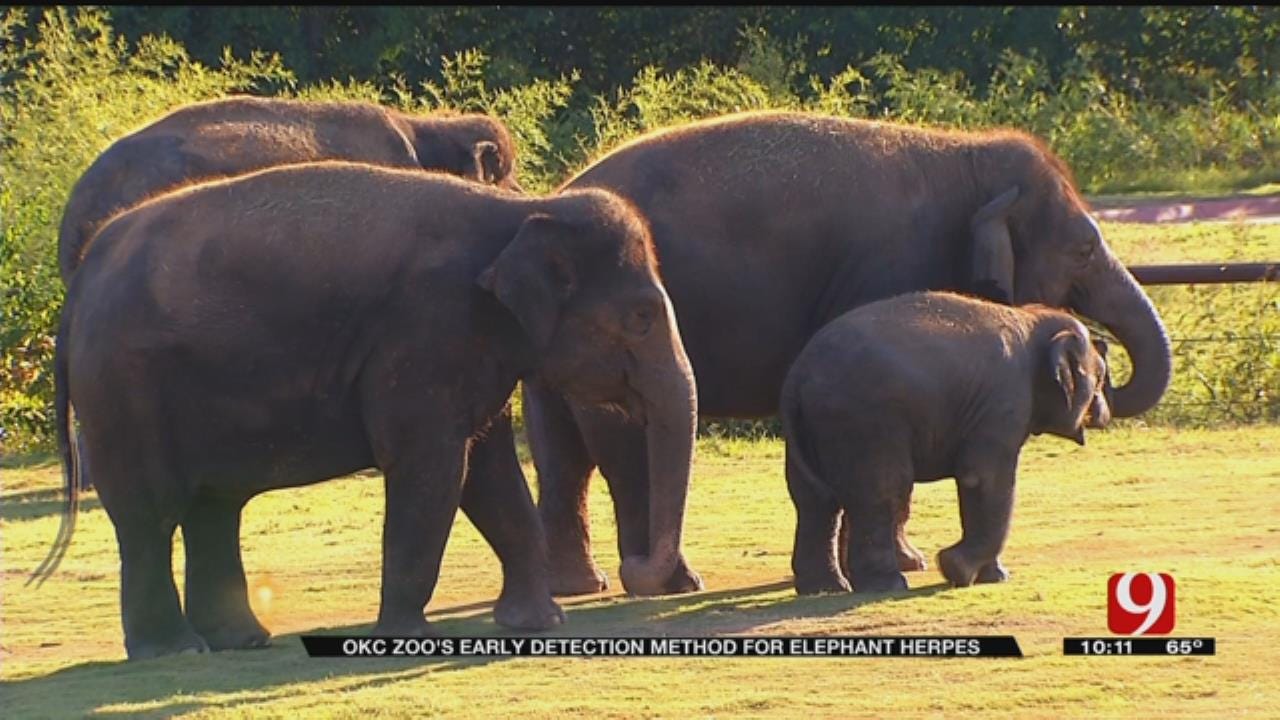Baby Elephant Achara Recovering From Herpes Strain
<p>The Oklahoma City Zoo's baby elephant Achara is recovering from a case of herpes. </p>Sunday, October 2nd 2016, 11:07 pm
The Oklahoma City Zoo's baby elephant Achara is recovering from a case of herpes. She took her final dose of medicine Saturday after about 10 days of elevated virus levels, which are now on the decline.
Achara has the same strain of elephant herpes that killed her sister Malee last year, EEHV 1A. This is the second strain she has been exposed to, as she previously contracted EEHV 1B.
Although Malee is gone from the herd, her death taught the local veterinarians a valuable lesson and they are now using better early detection methods.
Calf Achara, 18 months, looks like any other thriving baby elephant. She never showed symptoms of being sick, and neither did 4-year-old Malee until it was too late.
Veterinarians still do not know why the elephant herpes virus is fatal in some cases, but they compare it to something we can all relate to.
“Pretty much every human being has had chicken pox,” said director of veterinary services Jennifer D’Agostino. “That’s a herpes virus. It’s something that is just in the entire population. That’s the same thing with elephants.”
Calves contract the virus from touching trunks with adults, who all carry it. Achara is still nursing and has some protection from the antibodies in her mother’s milk, unlike Malee who was older when she got sick.
D’Agostino thinks that is one reason Achara is reacting better than her sister did.
The adults are only contagious when they are “shedding.”
“When they’re shedding the virus it’s in their trunk secretions, which is basically the equivalent of a runny nose for us,” D’Agostino said.
The Oklahoma City team has each elephant in the herd wash their trunks with a saline solution once a week to monitor their health.
A year ago, the vets relied on the weekly trunk checks and monthly blood tests in calves to tell when the younger elephants were sick.
Now, as the only calf left, Achara gets her blood screened weekly for changes in her cell counts as the first sign that something is wrong.
Even still, the process is slow.
“We have to send it overnight to the National Zoo Elephant Herpes Laboratory and then they have to run the sample and get us the result,” said D’Agostino.
It takes up to two days for the scientists in Washington, D.C., to process the Oklahoma elephants’ blood, which is why the local crew only sends Achara’s samples.
After Malee's death, though, zoo administrators are determined to get their own testing machine, which can run samples in as quickly as four hours and will allow them to monitor the entire herd.
That machine will be installed and running by the end of the year.
Veterinarians at the Oklahoma City Zoo are very active in research efforts to develop a vaccine for these herpes strains that may one day prevent fatalities like Malee's and protect the critically endangered species of Asian elephants.
More Like This
October 2nd, 2016
January 2nd, 2025
September 29th, 2024
September 17th, 2024
Top Headlines
April 4th, 2025










